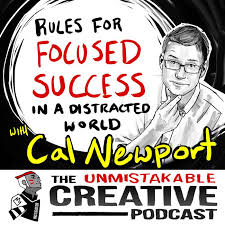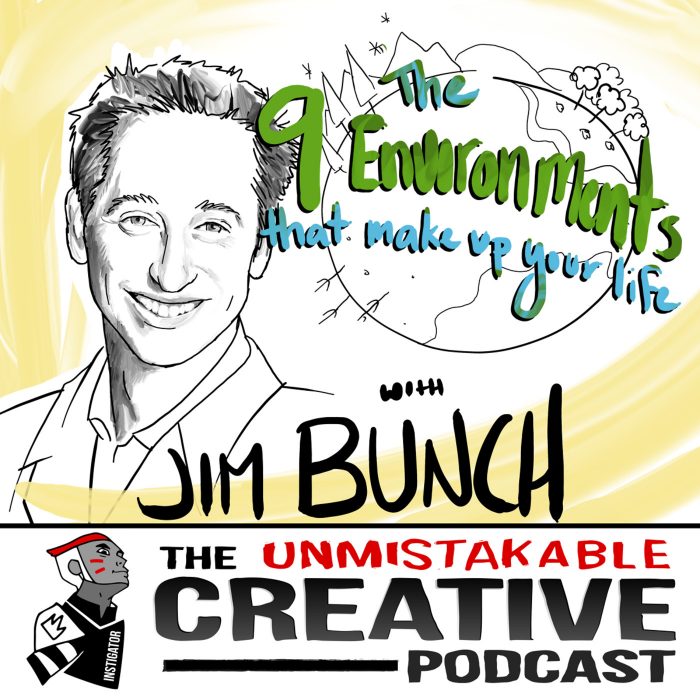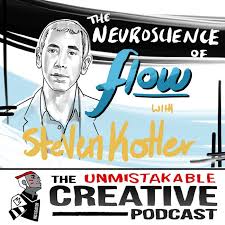Writing is about hypnotizing yourself into believing in yourself, getting some work done, then unhypnotizing yourself and going over the material coldly. - Anne Lamott
Anyone can become a fearless writer.
My favorite nonfiction writers all do one thing really well- they sound like genuine humans who I'd want to hang out with. They're opinionated, vulnerable and even as they educate me—they're real.
This ability to speak directly to your innermost hopes and ambitions is what makes so many fall in love with the idea of being an author. The ability to impact tens of thousands of people through my words—it's an intoxicating idea. But it's an idea that comes with a hell of a lot of baggage.
People who start writing often just want to be authors. If that's you, let me save you a hell of a lot of time and pain.
Here's step 1: Be a writer first. If you're unwilling to write when nobody is reading your work, you'll never start at all. Start because starting at zero is the precursor to building an audience for your work, which comes before book deals.
Anyone who writes regularly can become a prolific and fearless writer. Showing up fearlessly is something that is only earned by consistently creating and sharing your work.
I hope this helps the real you show up on paper.
Read A Lot
All prolific writers seem to have one thing in common. They read a lot. Writing without reading is like cooking without ingredients. The more you read, the more you'll expose yourself to good writing, and the more that will begin to show up in your own work.
All writing is combination of influences. If you want to write memoirs, read memoirs. On the flip side, consuming content outside of your primary areas of interest can be useful too. It can help connect dots and recognize patterns. If you want to write nonfiction books, read non-fiction books. If you want to become a prolific writer, start by becoming a voracious reader.
Recommended Reading: Maximum Brain Leverage: How to Get The Best ROI From Reading
Deliberately Design Your Environment

All of your behavior is the result of the 9 environments that make up your life. Half the battle of becoming a prolific writer is designing an environment that is conducive to the person you want to become.
This is why I put a pen, notebook, noise cancellation headphones, and a book that I want to read on my desk the night before. This takes writing from being an item on a to-do list to an unconscious habit. I don't have to even think about it. The impact of environment on creativity is powerful. I dedicated an entire chapter to it in An Audience of One.
Leverage Success Accelerants to Kickstart your Writing Sessions
I start all my writing sessions the same way.
- I read for about an hour.
- I write a few pages in a notebook.
- I open my laptop and write 1,000 words.
But there are some small tweaks anyone can make that drastically increase the likelihood that you'll follow through.
Your brain makes progress towards a goal based on the perceived distance to that goal. And you can tap the power of success accelerants to hit your writing goal with less effort.
Say that your writing goal is 1,000 words. If you start with a quote instead of a blank page, you reduce the perceived distance to hitting your word count. If a quote is 100 words, the perceived distance to 1,000 words is 900 words.
Set Clear Goals and Track Your Progress
In his book The Rise of Superman, Steven Kotler cites clear goals as a flow trigger. One of the easiest ways to amplify the clarity of a goal is to put a number in front of it. "Write 1,000 words a day" or "write 25 minutes a day" is much clearer than "write every day".
Visible progress is one of our greatest motivators. Seeing progress means we're getting results, and that momentum makes you far more likely to come back tomorrow and the day after. But we confuse progress and outcomes. You make progress by focusing on lead measures, by putting effort into what you can control.
Focus on the Process, Not The Outcome
When it comes to writing, I can't control how people will respond to my work, how many people will share it, or whether it resonates. The only thing I control is whether or not I sit in my chair and start typing. You can track word counts, number of days in a row you put pen to paper, or any other metric that you control.
Accumulate Pages, Not Judgments and Write Shitty First Drafts
If you read anything that Amber Rae, Sarah Peck, or Dani Shapiro write, it's hard to imagine any of them sitting in front of a notebook and writing a shitty first draft. Their words sound like music. We see the product instead of the process. And as a result, we assume that the process is as poetic as the product.
But as Anne Lamott says, "All good writing begins with terrible first efforts".
I can't think of one day in the last 6 years when I woke up and thought to myself, "I'm amazing at this". My writing software and journals are filled with dozens of false starts and endless pages of incoherent psychobabble. All I know is that I'm going to write 1,000 words a day.
Don't worry about writing. Just start moving your pen across the page or typing. Something will show up. It won't be good or worth reading. But it will be something and it will be yours. If you keep at it for long enough, you'll accumulate more pages than judgements and have your shitty first draft.
Capture Your Ideas

As I wrote in An Audience of One, "Nobody has a shortage of ideas, we just lack the discipline to capture our ideas."
Carry a Notebook: Notebooks are fertile soil for creative ideas and a physical notebook is the best distraction free writing tool there is because nothing else is competing for your attention. "Sitting down with your notebook grants you that precious luxury. It provides a personal space, free from distraction, where you can get to know yourself better," says Ryder Caroll.
Build a Second Brain/Editorial Calendar: Your brain is a terrible place to store information. If you maintain an editorial calendar or idea repository, you'll never run out of things to write about. You want to accumulate ideas in the same way you accumulate pages, without judgement. Don't worry if your ideas are half-baked or unclear. As you'll see in the screenshot below, I have dozens of ideas for articles "in progress".
Unless you capture your ideas, you'll never capitalize on them.
Get out in Nature
Nature can have a profound impact on your creativity. Nature forces us to disconnect and get completely immersed in our environment. It pulls us into the present moment, amplifies our joy, and let's our unconscious mind get to work.
A few weeks ago, I was snowboarding in Big Bear and just as I was about to go down a black diamond for my 5th run of the day, I came up with the idea for an article about the relationship between risk tolerance and what is possible with our lives.
The bulk of the content in Unmistakable: Why Only is Better Than Best was inspired by my experiences as a surfer. You rarely come up with your best ideas banging your head against the wall or sitting in front of a computer screen.
Manage Your Attention

Attention is the currency of achievement. If you learn to manage your attention, you can achieve remarkable things as a writer in just one focused hour a day.
Flow follows focus and peak performance and poetic words follow flow. When you reach a state of flow as a writer, you'll be able to produce the same amount of work and higher quality of work in a fraction of the time. It took me an hour to write the first 3 paragraphs of this post, but I've written the rest of it in about 20 minutes.
Beware of Attention Residue: When you shift your attention from your writing to an email in your inbox or a Facebook notification, you split your attention. When you return back to your writing, you will experience what is known as attention residue. You'll be thinking about the email or Facebook notification for a non-trivial amount of time to follow. Not only that, but you may not get back into flow.
For anything I've mentioned thus far to be effective, your creation time has to be completely uninterrupted.
Recommended Interviews
Confidence Comes from Competence
You're not going to be a great writer when you start. But confidence comes from competence. It comes from showing up. With each writing day, you step slightly outside of your comfort zone. You build evidence that you're a capable writer. As Seth Godin once said after writing more than 6,000+ blog posts, "It took a long time to blog like me."
I'm not confident in my writing abilities because of any innate talent. I'm confident in those abilities because I've built the right process and systems. If I follow through on it, something decent will eventually show up on the blank page.
Today we're opening our new Fearless Writer's Masterclass. It's the best of everything I've learned from 10 years of writing and publishing two books. We'll also be starting a writing accountability challenge which you can join here for free using the Spar app.



